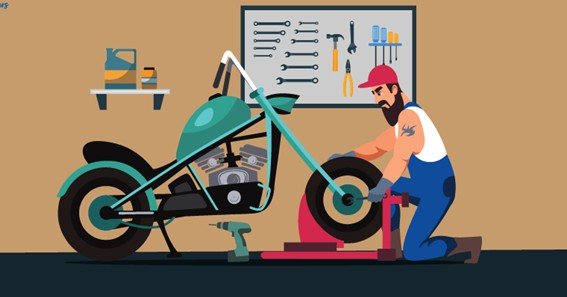If you’ve ever wondered, “Why can’t you use the engine brake in the rain?”, you’re not alone. While engine brakes (also known as Jake brakes) are invaluable for controlling speed and reducing wear on service brakes, their use in wet conditions can pose significant risks. Understanding these dangers is crucial for safe driving during inclement weather.
The Dangers of Engine Braking on Wet Roads
1. Loss of Traction
Engine brakes apply retarding force to the drive wheels. On slippery surfaces, this can lead to the drive wheels losing grip, causing the vehicle to skid. Unlike service brakes, which distribute braking force across all wheels, engine brakes focus on the drive axle, increasing the risk of traction loss in wet conditions.
2. Risk of Jackknifing
When the drive wheels lose traction due to engine braking, especially in tractor-trailer setups, the trailer can push the tractor, leading to a jackknife situation. This is particularly dangerous on wet or icy roads, where reduced friction exacerbates the problem.
3. Uneven Braking Force
Engine brakes do not engage the trailer brakes. In wet conditions, this uneven braking can cause the trailer to swing or slide, especially during downhill descents or sudden deceleration.
Best Practices for Braking in the Rain
-
Use Service Brakes: Rely on your vehicle’s service brakes, which apply braking force to all wheels, providing more balanced and controlled deceleration.
-
Reduce Speed Gradually: Slow down by easing off the accelerator and applying brakes gently to prevent skidding.
-
Avoid Sudden Movements: Steer and brake smoothly to maintain traction and control.
-
Increase Following Distance: Wet roads increase stopping distances; maintain a greater gap between you and the vehicle ahead.
-
Stay Alert: Be vigilant for changing road conditions, such as puddles or oil slicks, which can further reduce traction.
FAQ
Q1: Is it ever safe to use the engine brake in the rain?
While some experienced drivers may use engine brakes on wet roads, it’s generally advised to avoid them due to the increased risk of traction loss and jackknifing.
Q2: Can engine brakes cause wheel lockup on wet roads?
Engine brakes can cause the drive wheels to lose traction, leading to skidding, especially if applied suddenly or at high settings.
Q3: What should I do if I start to skid while using the engine brake?
Immediately disengage the engine brake, steer in the direction of the skid, and gently apply the service brakes to regain control.
Q4: Are there alternative methods to control speed on wet descents?
Yes, downshifting to lower gears and using service brakes intermittently can help maintain control without relying on engine brakes.
Q5: Do modern vehicles have systems to prevent skidding when using engine brakes?
Some vehicles are equipped with advanced traction control systems, but it’s still best to avoid engine braking in slippery conditions to minimize risks.
Stay tuned to learn more about fix-car-ac-near-me










